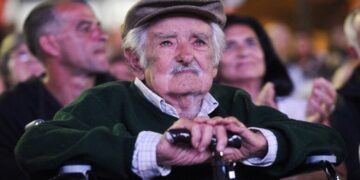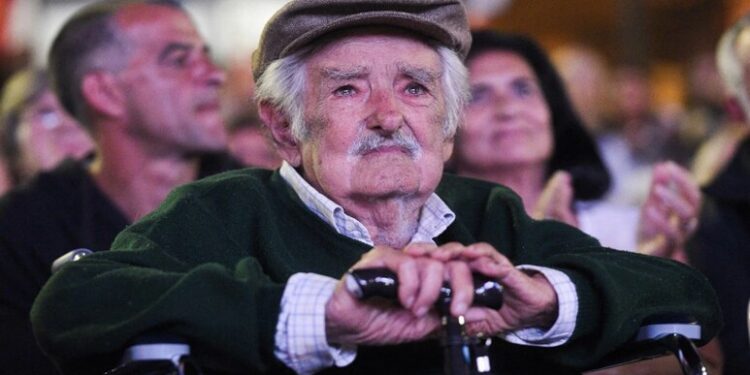José Mujica, the former guerrilla fighter who became Uruguay’s president, passed away at the age of 89, leaving behind a remarkable legacy as one of the most unique and admired leaders in Latin America. Known for his humility and unconventional approach to politics, Mujica’s journey from prison to presidency, and his simple lifestyle, garnered international attention, earning him the moniker “the world’s humblest president.”
Early Life and Guerrilla Involvement
Born on May 20, 1935, in Montevideo, José Mujica grew up in a modest household. His father, a small farmer, died when Mujica was young. After leaving school at a young age, he became involved in leftist politics, which ultimately led him to join the Tupamaros in the 1960s. The Tupamaros were an urban guerrilla group that fought against Uruguay’s military-backed regime, using tactics such as kidnappings and robberies. Mujica’s role in the group was significant, and it led to his capture in 1972.
Imprisonment and Transformation
Mujica spent over 14 years in prison, where he was subjected to torture and harsh conditions. Much of his time was spent alone in small, underground cells, with very little contact with the outside world. Despite the difficult circumstances, Mujica later reflected on how prison had a profound impact on him. He spoke candidly about experiencing moments of madness, delusions, and even conversing with ants to maintain his sanity.
He was released in 1985, as Uruguay transitioned back to democracy, and he soon became involved in politics. Mujica joined the Broad Front, a coalition of left-wing parties, and was elected to parliament. He went on to serve as Uruguay’s Minister of Agriculture, where he gained recognition for his direct approach and strong connection with rural communities.
Presidency and Social Reforms
In 2009, José Mujica ran for president and won the election with strong support, becoming the 40th President of Uruguay. His presidency, which lasted from 2010 to 2015, was marked by progressive reforms and significant social change. Under his leadership, Uruguay became the first country in the world to legalize the production and sale of marijuana, aiming to combat drug trafficking and reduce crime associated with illegal drug markets.
Mujica also oversaw the passage of laws that allowed same-sex marriage and abortion under regulated conditions, reflecting his progressive stance on social issues. Despite his position as president, Mujica remained committed to living a humble life. He chose not to reside in the presidential palace, instead living in a modest farmhouse on the outskirts of Montevideo, where he remained with his wife, Lucia Topolansky, a fellow former guerrilla fighter and senator. They lived alongside their three-legged dog, Manuela.
A Life of Humility
Mujica’s lifestyle drew widespread attention both in Uruguay and internationally. He refused to live in luxury, choosing instead to donate 90% of his presidential salary to charity. He often cycled to work, drove a beat-up Volkswagen Beetle, and lived simply. His rejection of materialism and extravagant living became a defining aspect of his persona, and he became known as “the world’s poorest president.”
However, Mujica rejected the label of “poor,” stating that true poverty was living a life solely focused on maintaining an expensive lifestyle and constantly desiring more. “I don’t feel poor,” he said in 2012. “Poor people are those who only work to try to keep an expensive lifestyle and always want more.” His beliefs were grounded in the idea that happiness and fulfillment came not from material wealth, but from living according to one’s principles.
Legacy and Impact
Mujica’s presidency saw economic expansion, with Uruguay’s exports to China boosting the country’s economy. Poverty levels decreased, and the minimum wage rose. Despite some opposition to certain reforms, such as the land tax, Mujica’s administration was widely praised for its progressive social policies and its commitment to addressing inequality.
Beyond his presidency, Mujica continued to speak out on global issues. He became a vocal advocate for climate change action and warned about the dangers of overconsumption and short-term thinking. He argued that society needed to embrace long-term planning to address the pressing issues of the 21st century. His ideas, often considered radical in their simplicity, resonated with people around the world who were seeking alternative paths to development and sustainability.
Mujica’s views evolved over time, particularly on capitalism. While he once espoused revolutionary ideals, he came to understand that working within existing systems was necessary to fund public services and achieve long-term societal transformation. Critics argued that he had abandoned his earlier radical stances, but Mujica maintained that ideology should not obstruct practical solutions to real-world problems.
Final Years and Continuing Influence
After leaving office in 2015, José Mujica did not return to formal politics but continued to be a prominent public figure. He remained an advocate for peace, social justice, and environmental sustainability. His legacy as a leader who remained grounded in his values, who prioritized the welfare of his people over personal gain, and who lived a life of remarkable simplicity continues to inspire people around the globe.
José Mujica’s life serves as a powerful reminder that true leadership is not defined by wealth, power, or status, but by one’s commitment to justice, humility, and the well-being of others. His story will be remembered as one of the most extraordinary in modern political history.
Also Read : US Official Shuts Down Pakistani Reporter Over India Ceasefire Allegations















 Categories
Categories









